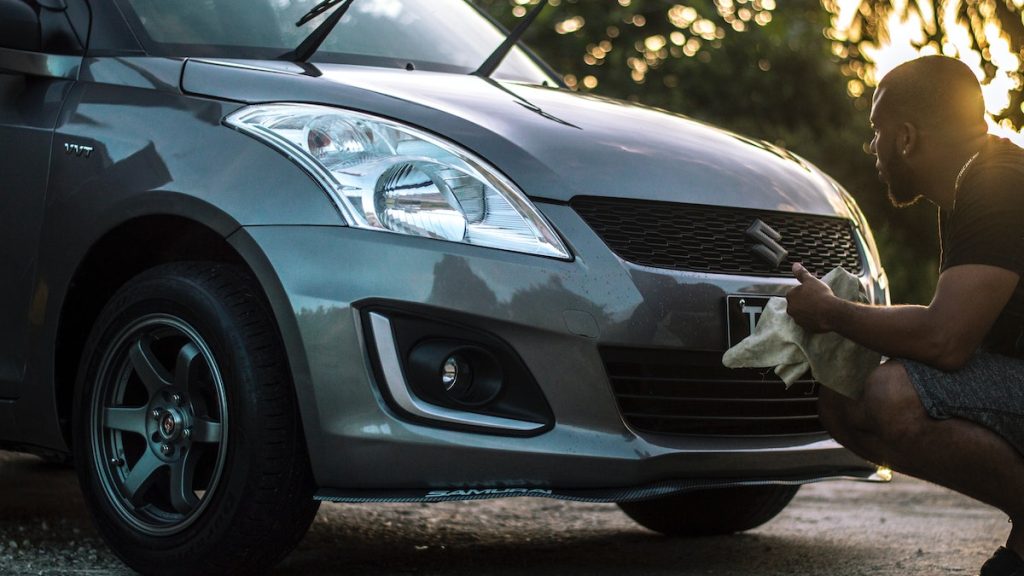Table of Contents
When you purchase car insurance online, it can be hard to know what kind of coverage to choose. Do you need full coverage? Will liability cover enough? To help make the decision easier, understanding the different types of vehicle insurance is key. This guide will explain each type of car policy and their differences so that you can make an informed decision on your car insurance purchase.

Collision Coverage
Collision coverage pays for any repairs needed in case of a collision with another vehicle or object. If you are at fault in an accident, this type of policy will cover the repair costs for both parties involved. Collision coverage also covers damage done to objects such as walls and trees if your vehicle collides with them. Remember that if you are financing your vehicle, financial lenders usually require this coverage.
Comprehensive Coverage
Comprehensive coverage protects the insured from loss or damage to the vehicle caused by circumstances other than a car accident. This type of coverage includes theft, fire, hail, and vandalism. For example, if someone steals your car or it’s damaged in a hailstorm, comprehensive coverage will cover the damages. Comprehensive insurance is optional and can be tailored to meet specific needs, such as custom parts for classic cars.
Liability Coverage
Liability coverage pays for any bodily injury or property damage caused by you while operating your vehicle. Certain minimums are set for liability coverage and must be purchased depending on the state you live in. If an accident occurs and it’s determined that you are at fault, this type of policy will cover medical expenses or property damage of the other party involved. It’s important to keep in mind that liability insurance does not cover damage done to your own vehicle if you were at fault.
Uninsured/Underinsured Motorist Coverage
It provides protection for you in case of an accident with a driver who has no insurance or does not have enough to cover the cost of damages caused by them. This type of policy also covers any passengers in the car and pedestrians that an at-fault uninsured driver injures. Uninsured/underinsured motorist coverage is an optional policy, but it’s something to consider if you live in an area where a lot of drivers have no insurance.
Zero Depreciation Coverage
Zero depreciation is an add-on cover available in car insurance policies that allows you to get the full market value of your damaged car parts when you make a claim. This means that, instead of getting only the depreciated value of those parts, you can get their original cost when they were bought brand new. Zero depreciation coverage is generally more expensive, but it could be worth it if you want to maximize your compensation for any damages done to your vehicle.
Do I Get Any Add-Ons Under My Vehicle Insurance?

Car insurance policies have many add-ons that can provide extra coverage and protection. These add-ons are usually optional but may be included in your policy depending on where you purchase the car insurance online. Here is a list of some of the most common add-ons:
- Roadside Assistance: This will cover any costs incurred when you need help on the side of the road, such as towing or jumpstart.
- Personal Accident Cover (PAC): This will cover medical expenses if you get injured while driving an insured vehicle, regardless of who was at fault for the accident.
- No Claim Bonus (NCB) Protection Cover: This protects your NCB even if you make a claim during the policy period.
- Key Replacement Cover: This covers the cost of replacing lost or stolen keys for the vehicle.
- Engine Protect Cover: This covers any repair costs related to damage done to the engine due to water seepage and other issues.
- Zero Depreciation Cover: This covers the full market value of any damaged parts for your vehicle instead of their depreciated value.
- Invoice Price Protection: This will cover the difference between an insurer-approved repair estimate and the invoice amount from a garage or workshop.
- Consumables Cover: This covers any consumable items related to the car, such as oil, grease, lubricants, and coolants, that need to be replaced due to normal wear and tear.
- Hire Car Cover: In case of theft or total loss of your vehicle, this cover provides you with a hire car while yours is being repaired or until your insurer replaces it.
- Return To Invoice Cover: This will pay you the difference between your insurer’s settlement amount and the invoice price of your car in case it gets stolen or written off.
These are just some of the add-ons that different insurers offer under their vehicle insurance policies. Before purchasing a policy, make sure to review all the available options and choose one that best meets your needs.
What are the Factors to Consider When Choosing Car Insurance Online?

When choosing car insurance, it’s important to consider several factors to ensure you get the right coverage for your vehicle. Here are some of the key points to keep in mind when selecting a policy:
- Coverage Type: Before purchasing a car insurance policy, make sure you understand what type of coverage is included and any additional add-ons that might be available. This will help you make sure you have the necessary protections for your vehicle.
- Cost: It’s essential to research different policies and compare rates before settling on an insurer. Doing this can save you money in the long run by getting you a more comprehensive policy at a lower cost.
- Reputation: Make sure to research the reputation of car insurance companies before signing up for a policy. Look at reviews from other customers and check their website for information on any complaints or settlements they have had in the past.
- Claim Process: In case of an accident, it’s important to understand the process for filing a claim. Check with your insurer beforehand to learn about any paperwork you might need and how long the process may take.
The Bottom Line
Armed with this knowledge, you should now have all the information you need to understand different types of car insurance coverage and make an informed decision when it comes to selecting a policy for your vehicle. Be sure to do your research and shop around for the best value and service before signing up for a car insurance policy. Good luck!



